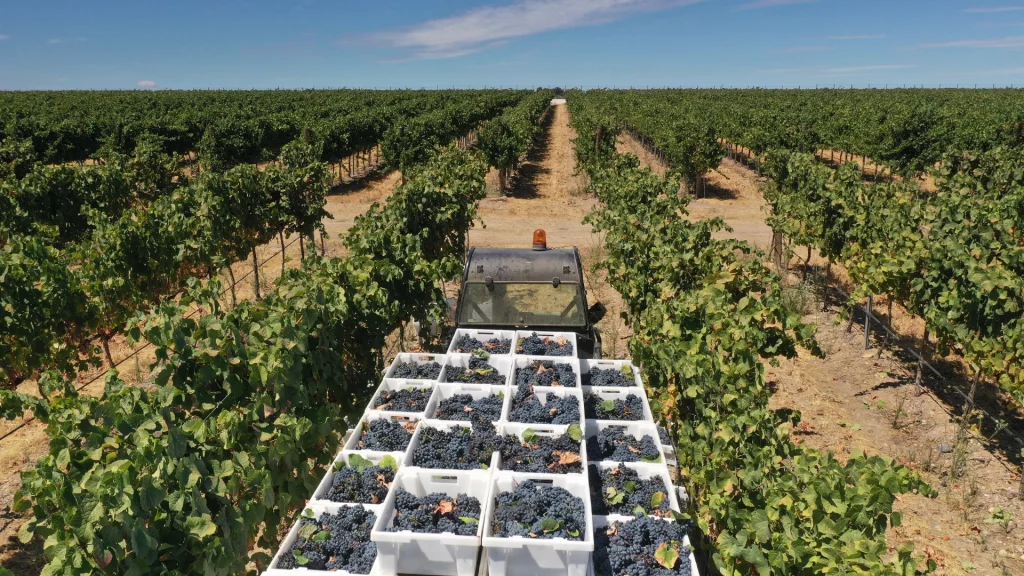Cante alentejano may have had its origins in the Gregorian choirs of Catholic churches or in Arab chants that echoed through the plains of the south of the country for centuries. Since the documented history of cante alentejano dates back only to the 19th century, it is impossible to define its origin with certainty. Still, we know that it has existed long enough to become one of Alentejo’s most famous traditions, despite not being the only musical expression in the region.
With a distinct sound unmatched throughout the country, these songs by Alentejo choral groups have become a calling card for this region and an international attraction since being deemed World Intangible Cultural Heritage by the United Nations Educational, Scientific, and Cultural Organisation (UNESCO) in 2014.
Cante alentejano: a polyphony of voices singing tradition
The word “cante” takes on the regional phonetic for the term “canto” and is used for traditional choral singing practised by amateur groups in the Alentejo region. Without using any musical instrument, the singing groups can bring together up to 30 singers where two soloist voices, the ponto, who initiates the tune, and the alto, who doubles the melody with variations of scale and ornaments, alternate with the choir of voices, where the soloists also participate.
The stanzas are repeated cyclically, as many times as the choir group considers necessary, and the repertoire of sung pieces, called modas, covers various themes, from rural life to Alentejo nature, love, maternity, and religion. This structure of cante alentejano brings a very particular polyphony to the unique experiences of this region, which has given it its uniqueness in Portugal and the world.
Practised by rural workers who sang it to soothe the long and hard days of work, cante also had a special place in taverns after sunset. There it took on a role of fighting for the rights of these workers, as exemplified by one of the most famous songs of cante alentejano in Portugal, Grândola Vila Morena, by José Afonso.
A sense of identity and belonging
This form of singing, so different from others found in Portugal and the world, played and still plays a fundamental role in the social and cultural life of the communities of the Alentejo.
Used at social gatherings and passed down through generations in choral rehearsals, it has always been synonymous among the participants of these choral groups with a strong sense of belonging and identity towards their region.
This contribution to the social cohesion of the people of the Alentejo has given cante a new lease on life. Whereas before people used to get together to sing spontaneously and in various contexts, nowadays, this is more common only for singers who are part of a pre-defined Alentejo choral group.
But these groups are cherished by the local communities that encourage young people’s interest in the Alentejo songs sung in this way so that cante does not disappear from the traditions of the Alentejo.
Cante alentejano belongs to women too
Although cante alentejano is almost always associated with the imagery of a choir of male voices, the truth is that female voices were only excluded from these groups for a few decades in the 20th century, during Salazar’s political regime, which kept them exclusively male.
Until then, women had never been excluded from cante in private situations and in the informal groups that practised it. After the 25th of April revolution, the women regained their voice. Their presence grew again, marking the cante singings of the Alentejo with new notes and sonorities. Nowadays, mixed groups are common, where men and women continue to contribute to the definition of the Alentejo identity through singing.
Cante alentejano is now present in festivals and concert halls and has become a tourist attraction in many restaurants where these groups perform for tourists. Nevertheless, the so-called cante, in its sheer form, spontaneous and improvisational, can still be heard in some taverns of the Baixo Alentejo.
The Alentejo towns and cities of Cuba, Mourão, and Serpa are mentioned as where cante still survives in its most traditional form. In the taverns of these towns, the singers’ sorrowful voices can still be heard. According to the locals, only those who are genuinely from the Alentejo can offer this authentic, heartfelt singing drawn from the depths of the region’s soul.



